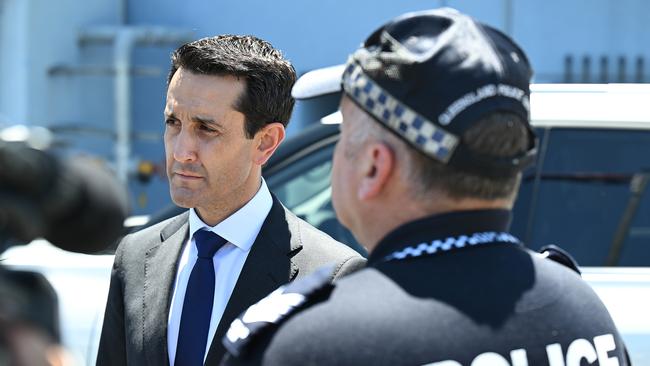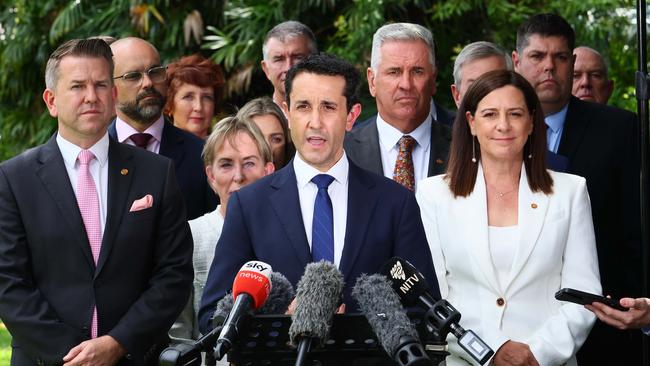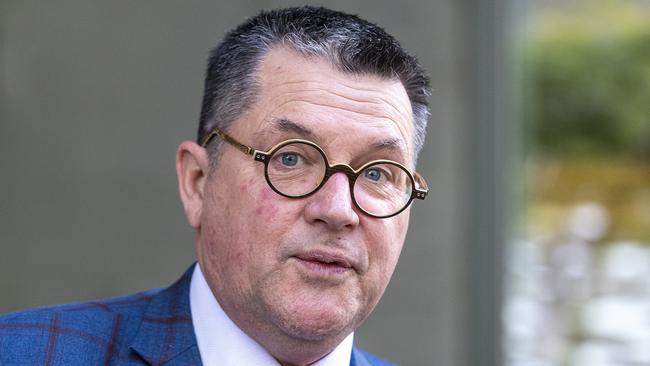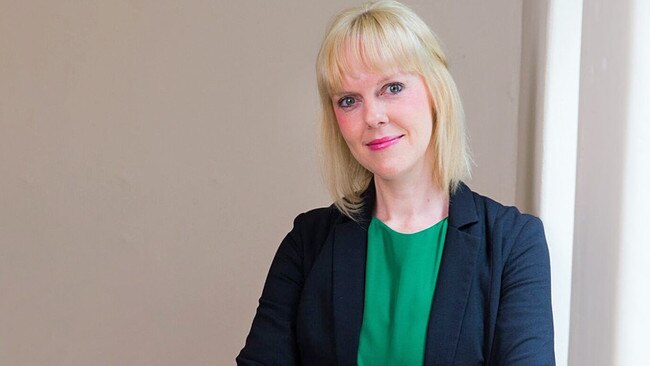Double-edged challenge for Crisafulli: If he can’t arrest crime rate, tide will surely turn
David Crisafulli hung his hat on youth crime. This might have been a vote turner – outside Brisbane, at least – but now he has to translate a four-word slogan into robust law. And the clock is ticking.

Public service boss Mike Kaiser, a former Labor MP who cut his teeth in politics as ALP state secretary, insisted there would be no foot-dragging or obfuscation by bureaucrats. They would impartially implement the spring clean ordered by voters.
Outgoing premier Steven Miles said Crisafulli had earned a mandate to bring in his signature “Adult Crime, Adult Time” policy, which the Labor Party fought all the way to defeat at last Saturday’s state election.
Smooth changes of government are a feature of Australian democracy we take utterly for granted – unwisely, if the sorry state of America’s fractured polity is any guide.
But let’s not get too carried away. Miles’s professed magnanimity contained a hefty dose of self-interest, born of the conviction that Crisafulli’s hardline antidote to youth crime will fail. Labor enters opposition believing it is very much in the fight.

What’s clear is that the new Premier’s ambition to translate a strong election result into long-term power hinges on his ability to tackle the hydra-headed problem of juvenile offending.
Make no mistake: Crisafulli won big, securing at least 16 additional seats on a primary vote swing of 5.9 per cent to the LNP statewide. Had it not had to overcome a deficit of 12 to take control of the 93-place parliament, this would have been hailed as a landslide victory. The incoming government can count on a minimum majority of five seats.
Still, the gains were far from evenly spread across the nation’s most decentralised state, where one elector in two lives outside the capital city. The LNP’s vote skewed heavily to Queensland’s far-flung regions. There, anger is white-hot at the surge in home invasions and robberies committed by young thieves intent on stealing cash and cars, sometimes at knifepoint.
It represents a double-edged challenge for Crisafulli.
If he can’t arrest the crime rate the tide will surely turn – as it did against Campbell Newman in 2015, when both men lost their seats in parliament after a single turbulent term of government for the LNP, delivered by one of the most emphatic election victories on record. (Newman won 78 of a then 89 state seats in 2012.)
Crisafulli is determined not to go down as another “oncer” and says he learned from the mistakes made during those years. The to-do list is formidable. The state’s once-admired public finances are mired in debt, set to top $172bn in 2027-28, yet the LNP is pledged to honour Labor’s budgeted spending commitments across the forward estimates; the search for a stadium for the 2032 Brisbane Olympics is back to square one; energy policy is a mess and Crisafulli has turned his back on an ALP plan to build the world’s largest pumped hydro set-up in the Pioneer Valley, west of Mackay; the long lines of ambulances ramped outside public hospital emergency departments attest to a health system in trouble.
Yet Crisafulli hung his hat on youth crime. This might have been a vote turner – outside Brisbane, at least – but now he has to translate a four-word slogan into robust law. The clock is ticking: he has promised that the Adult Crime, Adult Time legislation will be through state parliament by Christmas.
Granted, those in power in George Street don’t have to contend with a bothersome upper house of parliament, something no other premier, or even the Prime Minister, can sidestep. A majority government in the Sunshine State gets to rule the house.
But what does Adult Crime, Adult Time actually mean? The age of criminal responsibility in Queensland is 10, so presumably all child and teen offenders between that tender age and 18, when adult sanctions kick in, are in the frame for grown-up sentences. It’s fair to say that the Bar and legal profession generally are deeply sceptical about the plan.
Take this scenario, put to Crisafulli’s office this week. A 13-year-old breaks into a house, fatally injures the unfortunate occupant and is convicted of murder in the Supreme Court, as is currently allowable. Would that child receive the mandatory life sentence applicable to an adult and serve the statutory minimum of 20 years before becoming eligible for parole?
The answer is, you bet. “No victim’s life should not be worth less than another simply because the offender is a youth,” the Premier’s spokeswoman said.
“Adult Crime, Adult Time puts the rights of victims first. If a youth offender chooses to commit the most serious crime like murder, they will receive the same sentence as an adult committing the same crime.”
Damien Atkinson KC, speaking in his capacity as chairman of the state’s Youth Advocacy Centre, says the courts can and do sentence juvenile law-breakers to lengthy, adult-like custodial terms if the crime warrants it. The 17-year-old who stabbed to death mother-of-two Emma Lovell outside the family’s northside home in suburban Brisbane on Boxing Day 2022 got 14 years for murder, exceeding the standard maximum of 10 years for young offenders. That is because the sentencing judge had discretion to add time for the “heinous” nature of the attack.
Atkinson argues Queensland is already locking up more underage criminals than any other jurisdiction – with 280 in detention at any given time, against 200-odd in NSW, a state 50 per cent more populous. “If incarceration is the answer to youth offending then this state should be winning,” he tells Inquirer. “I mean, some days we have more young people incarcerated in Queensland than Victoria and NSW combined.”

The devil promises to be in the detail that Crisafulli failed to divulge during the campaign. While hardly a press conference went by where he didn’t hammer youth crime – the LNP also offered up tens of millions in spending on new diversion programs and “gold standard” early intervention – only the barest bones of Adult Crime, Adult Time emerged.
“There’s been a dearth of information about what it is going to look like in practice,” Queensland Law Society president Rebecca Fogerty complains.
“As a community, we have always treated children differently. We accept that people under 18 are not capable of … voting, they’re not capable of making other decisions about their life. There are age restrictions on when they can drive a car, when they can legally have sex. So the idea that, you know, children are treated like adults for committing crimes really has the potential to sit very uneasily with the way that we … have always treated children.”
Former LNP leader Tim Nicholls, speaking in his capacity as shadow attorney-general before he was switched to health when the ministry was unveiled on Friday, said the new law will create a set of “serious children’s offences” that are effectively “carved out” of the existing Youth Justice Act.
These are likely to include murder, manslaughter, serious harm and wounding, home and business break-ins, robbery, car theft and dangerous operation of a vehicle. Currently, such cases start in the Children’s Court and, on application, are transferred to the District Court or Supreme Court. Nicholls argues the new category of serious children’s offences will streamline the process.
“If the case is murder, for example, then you are dealt with under the provisions of the criminal code … and all of the common law and legal provisions that apply to a murder trial for an adult would apply to a murder trial for a child,” he said.
Simple, right? If only. Let’s return to our hypothetical 13-year-old murderer. A common law presumption known as doli incapax – incapable of evil – requires the prosecution to prove that a child under 14 knew what they did was seriously wrong when they did it. Would this apply if that child were tried as an adult? Probably, but not for certain, senior lawyers say. Then there’s the question of how Adult Crime, Adult Time would sit with the Youth Justice Act and state human rights law.
A charter of youth justice principles underpinning the YJA is based on Australia’s obligations to the UN Convention on the Rights of the Child, according to the Queensland Sentencing Advisory Council, a statutory body.
For what it’s worth, article 37(b) of the convention holds that detention “shall be used only as a measure of last resort and for the shortest appropriate time”. But this position was abandoned by Miles in May when the Labor government amended the YJA, having suspended the state’s Human Rights Act to allow children to be held in police watch houses, while Crisafulli cranked up the pressure on youth crime. Perversely, the principle of jail as a last resort for adults stands.
‘That a 13-year-old gets treated the same as a 50-year-old … seems to me to be deeply cruel, troubling and incompatible with everything that we’ve learned about what makes good law’

Fogerty says Adult Time, Adult Crime is “almost certainly” incompatible with international law as well as domestic human rights protections. It also may be discriminatory, a potent cause of action in the near-certain event the provisions are subject to legal challenge. “That’s going to be very interesting in the context of a charge of murder,” Fogerty says. “Because murder attracts mandatory sentencing and the idea that a 13-year-old gets treated the same as a 50-year-old … seems to me to be deeply cruel, troubling and incompatible with everything that we’ve learned about what makes good law.”
There’s another potential wildcard: the judges. Newman took them on after he made a captain’s call to elevate QC Tim Carmody from chief magistrate to chief justice of the Supreme Court in mid-2014, amid criticism that Carmody wasn’t up to the job. The judiciary rebelled, a besieged Carmody ultimately resigned and Newman’s standing took one of the hits that doomed his first-term government, despite its elephantine buffer in parliament.
Crisafulli knows exactly what happened because he was there, at the cabinet table, watching the disaster unfold. Adult Crime, Adult Time is a different proposition but the stakes for Queensland’s 41st premier are just as high.
Newman will be watching with keen interest.
“I think it’s going to be a big challenge to implement,” he says of the youth sentencing reform. “When you’ve had Labor governments for 30 of the past 35 years and the bench is stacked with their left-wing appointments, there will be significant resistance.”
Crisafulli will be anxious to put an indifferent election campaign in the rear-view mirror after his “small-target” strategy tanked with voters, who went easier on a tired and ripe for the taking third-term Labor government than otherwise might have been expected.
He needs an unambiguous win on Adult Crime, Adult Time to reset. Some honeymoon. You have to wonder whether this is the fight he should be having.





Out with the old, in with the new crew. No better case could be made for our system of representative government, with all its flaws and foibles, than the seamless transfer of power that took place in Queensland this week to the Liberal National Party under David Crisafulli.